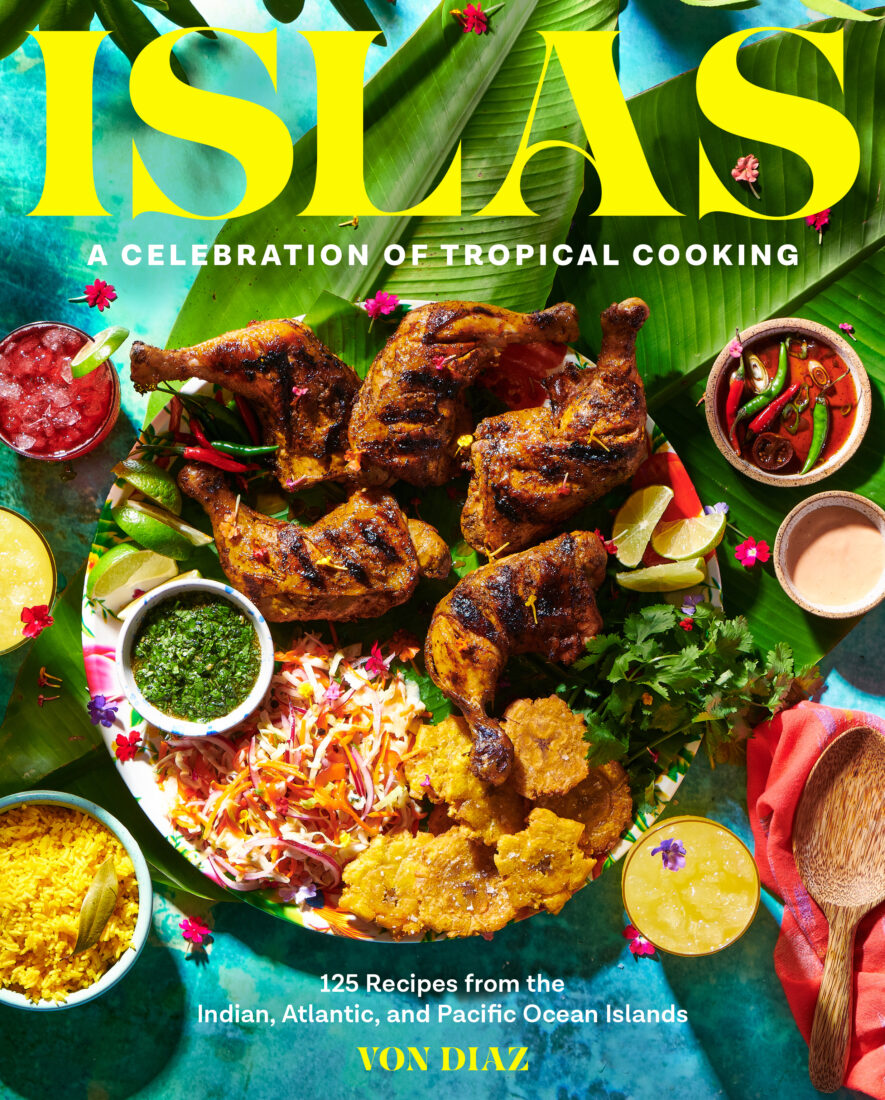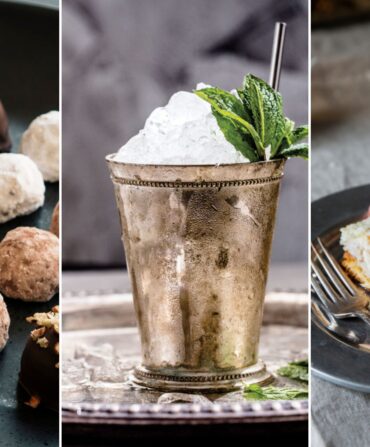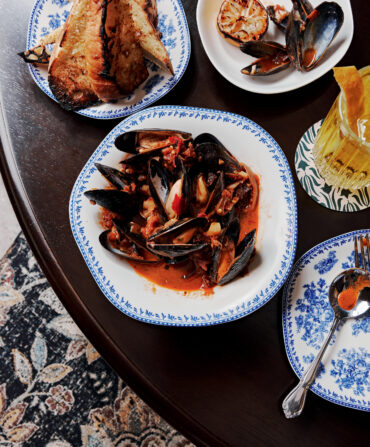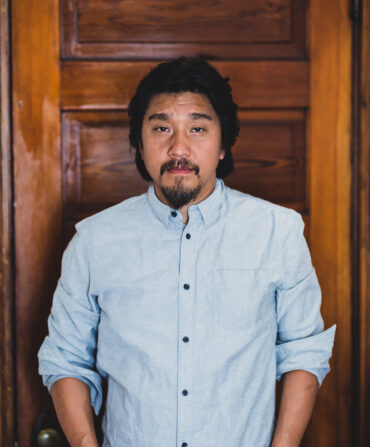“I have been thinking about the topics that I cover in this cookbook perhaps for my entire life,” says Von Diaz of her new book, Islas: A Celebration of Tropical Cooking, which comes out on March 12. Through 125 recipes that showcase the local cuisine of tropical islands across the Indian, Atlantic, and Pacific Oceans, Diaz considers the nature of island cooking—and explores her own Puerto Rican roots in the process.
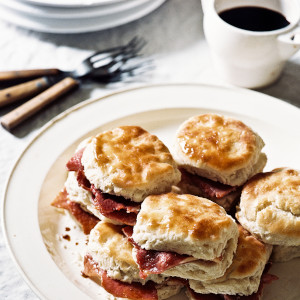
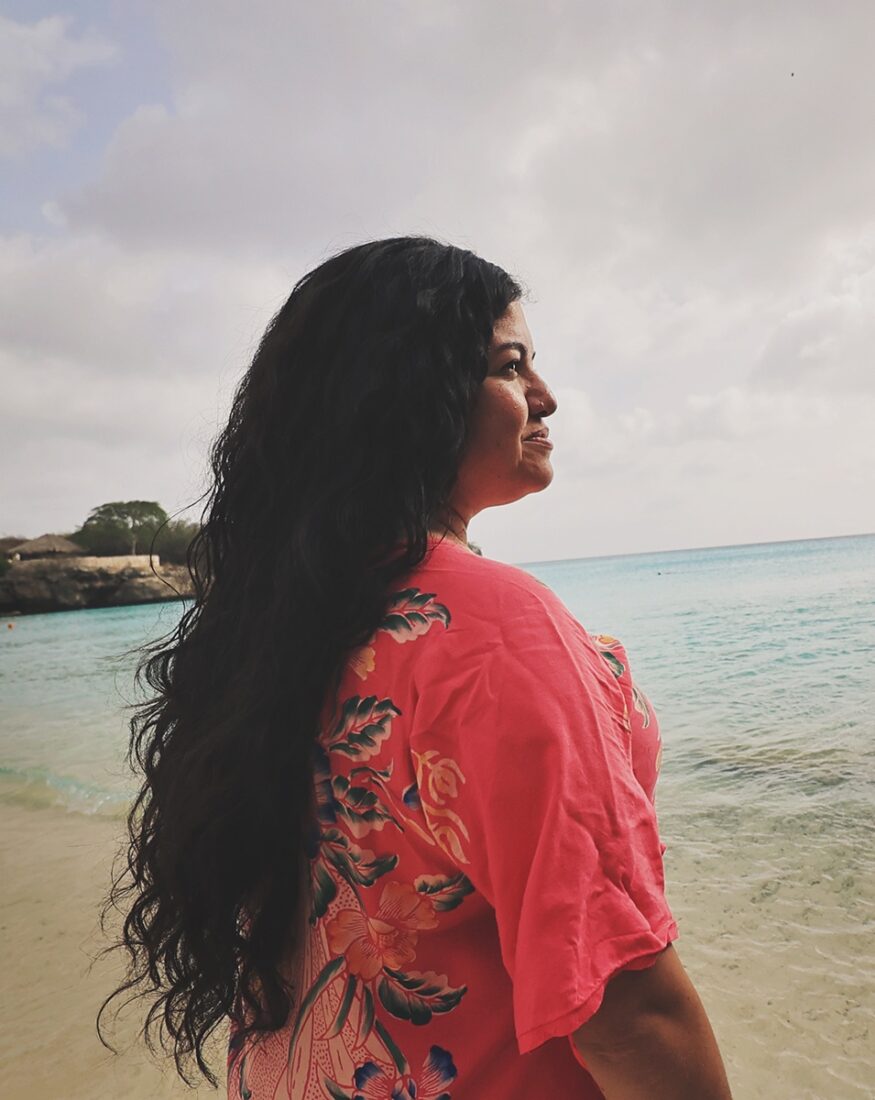
Divided by methods like braising and stewing, frying, and marinating, and guided by local characters on each island, Islas includes dishes like fish and fungi from St. Croix, citrus-marinated shrimp with coconut from Guam, Puerto Rican field peas in escabeche, and fried green plantains from Cuba. “With limited ingredients, [islanders] cook in ways that are soul-nourishing and emphasize flavor,” Diaz writes in the book’s introduction. “Making magic out of what’s available—the leaves that sprout from root vegetables such as taro; the otherwise inedible parts of animals such as hoofs and tails—is the way they’ve always cooked. It’s an expression of ancestry, adaptability, and fortitude.”
Below, we chatted with Diaz about the inspiration behind the cookbook, her grandma’s recipe for pasteles de masa, and what it means to be an islander.
What was the inspiration for this cookbook?
I was born in Puerto Rico, but I was raised outside of Atlanta. I grew up with a profound sense of duality. Folks who are multicultural always live in a state of comparison. So that natural consequence of my life and how I came to be on the planet sparked a curiosity in me about the place that I am from and led to me being curious about other islands. I experience this feeling of home when I am on islands and when I am around islanders.
We are a combination of cultures, all of us, and islands are small, isolated places. Fundamentally what it is to be an islander is to know that you are mixed and that your ancestors are likely an unusual collection of people. In Puerto Rico, my people are Taino, African, Spanish, and more recently, American.
For the cookbook, I asked, how are we similar? Why are we similar? That question has been bouncing around in my head for a long time and one day, I was outside in my yard here in Durham, North Carolina, cooking over fire, which I love to do. I just had a bit of a spark: Maybe it’s about how we cook, not what we cook. How we chop, how we sauté, how we roast, how we smoke.
I love how the recipes and the introductions to the methods are character-driven as well—you found a local on all of these islands.
I am a journalist by trade. I’m very interested in hearing from what we might describe as everyday people—your neighbor, the person who works at your grocery store, your kid’s teacher. It’s through people that we understand culture. So I approached the research for this by getting to know the people in these places. There are people who I fell in love with whose stories or experiences were meaningful to me, and people whose lived experiences revealed something about the place that I hadn’t heard otherwise.
Who stands out in your memory?
The Seychelles is an incredibly tiny, isolated island archipelago. Marie-May Jeremie was born there. She doesn’t have a restaurant. She’s not a chef, she doesn’t have any kind of a food business. She has committed all of her special powers to being an advocate for the biodiversity and conservation of the island. And I fell in love with her. I got to visit her, and I met her family. I got to cook with her mom. I’m happy to say that many of the people in this book have become my friends, and I’m now able to keep up with them and know how their lives continue to take shape.
What are some of your favorite recipes in here?
The marinades are all beautiful. I grew up marinating things…we always season our meat in Puerto Rico. You’ll never see just salt and pepper on anything. That’s like sacrilege. There’s a marinade for Filipino barbecue skewers that has pineapple juice in it. That’s amazing.
And the recipe for Puerto Rican pasteles de masa (a root veggie dough filled with meat that looks a bit like a tamale) is your family’s, right?
It’s an evolution of my grandmother’s recipe, which my mom and I found after she passed, scribbled on a piece of paper. It’s a dish that is designed for a special occasion, for a celebration. This recipe is a starting point for people to figure out how to make these their own.
I probably remember eating them for the first time in the States…I came when I was five. The thing about pasteles is that they’re not very pretty. I have memories of feeling excitement and joy at eating them…but I do remember always being like, man, they’re so ugly and they’re so delicious.
Were there any recipes from other islands that surprised you?
Half the book. One that comes to mind for me is pikliz from Haiti. When I tested the recipe, it looked to me like a coleslaw. It’s shredded vegetable, shredded cabbage, chilies. So it looked to me like a vinegary coleslaw dressing, but what I learned is that it’s not really like that, because for Haitians, pickling is used like a relish, like a garnish, like a hot sauce—all three of those things at once. But I grew up in the American South. I was like, that’s a coleslaw. So at first, I made it like a coleslaw. And actually, I do like it like that too.
What do you hope people take away from the cookbook?
So often people encounter islands and islanders as tourists. They go and they visit these beautiful places on vacation. Tropical islands are a getaway. But there are those who live there and who form the culture of these places, with rich histories and so much to offer. People on tropical islands are some of the scrappiest, most resilient people on the planet, in my opinion. I hope that folks who are interested in the places that I explore in this book will consider reading about them and digging deeper and doing more research so that when they do go visit a place, they go informed and with respect and admiration for the locals top of mind.
Garden & Gun has an affiliate partnership with bookshop.org and may receive a portion of sales when a reader clicks to buy a book.


